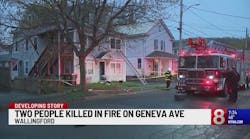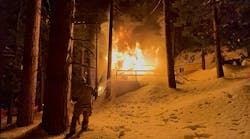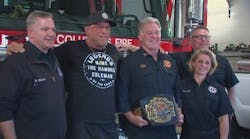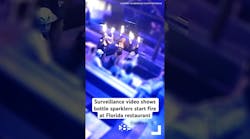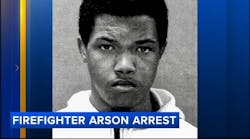An article recently appeared in the "In the Community" page of the Firehouse.com website. It was titled "9-Year-Old, Home Alone, Burns House Down." It was a short article, likely taken from a news wire. It carried the usual facts and broad statements along with quotes from witnesses and fire department personnel.
In this article, one quote in particular stood out. The older brother of the boy who started the fire said that the boy had received a fire safety booklet in school not too long ago. He went on to say "He knows not to mess with matches." Apparently not.
He/She "knows better" is a common statement heard by many who work with kids who have been involved in the misuse of fire. But is it a statement that even makes sense? If a child knew better than to misuse fire, what would compel him/her to misuse fire? It seems far too obvious that the real truth is that this child (and many others) really doesn't know better.
A common assumption is that because a firefighter visits a school or a child receives some fire safety literature, they have learned something. That may not always be the case. In fact, most school-based fire safety education will carry plenty of fire survival messages (stop, drop, and roll - after you catch on fire; crawl low under smoke - after a fire starts; have a safe meeting place - to go to after a fire) and far fewer fire prevention messages. Did this 9-year-old boy hear anything about matches and lighters being tools, not toys? Was he empowered with what he should do if he were to encounter matches/lighters in his home or was the far more familiar "Don't" message delivered?
Maybe it's too cynical to presume the correct messages were not delivered. Maybe another problem contributed to this event. What about the 9-year-old boy's ability to put the message to good use? Any number of things can interfere with any child's ability to process information. The usual distractions that are common in a school classroom setting are one explanation. Another could be a neurological condition such as Attention Deficits or other conditions that affect a child's ability to learn. These are very real in communities across the country. As schools are forced to reduce budgets, classrooms and teachers that would normally deal with more challenging learning circumstances are also reduced and consolidated. The end result is kids who may not be in their best learning environment, even though they sit in a school classroom.
Before you accept the idea that a child "knows better," it might be appropriate to consider what he/she really knows rather than what everyone believes he/she should know. It's only through proper instruction, practice, and evaluation that effective learning can be successful. If you work with children or any other citizens in your community to deliver safety education, consider your message, delivery, and evaluation carefully. This 9-year-old boy was fortunate to live through his act. Each year, hundreds of others are not so lucky.
Don Porth began working in the fire service in 1980 as a volunteer and student firefighter. Hired to the Salem, OR, Fire Department in 1983, he spent one year there before taking a job with Portland, OR, Fire & Rescue in 1984. Don was promoted into the Prevention Division in 1990 and assigned to Public Education. Along with managing the youth firesetting intervention program for almost eight years, he also supervised the unit for eight years.
Currently, Don oversees the Safety Learning Center & Fire Museum for PF&R. In his spare time, Don has served as President of SOS FIRES: Youth Intervention Programs since 1996. This is a position that Don feels has served an important purpose nationally and continues to be a positive influence to the youth firesetting field. Don has been married since 1984 and has two sons that fill his family time.
About SOS FIRES:Youth Intervention Programs is a non-profit organization committed to advocacy and intervention of youth firesetting behaviors. SOS FIRES provides consulting, training, research, and other support services across North America. For more information, visit the SOS FIRES website at www.sosfires.com.